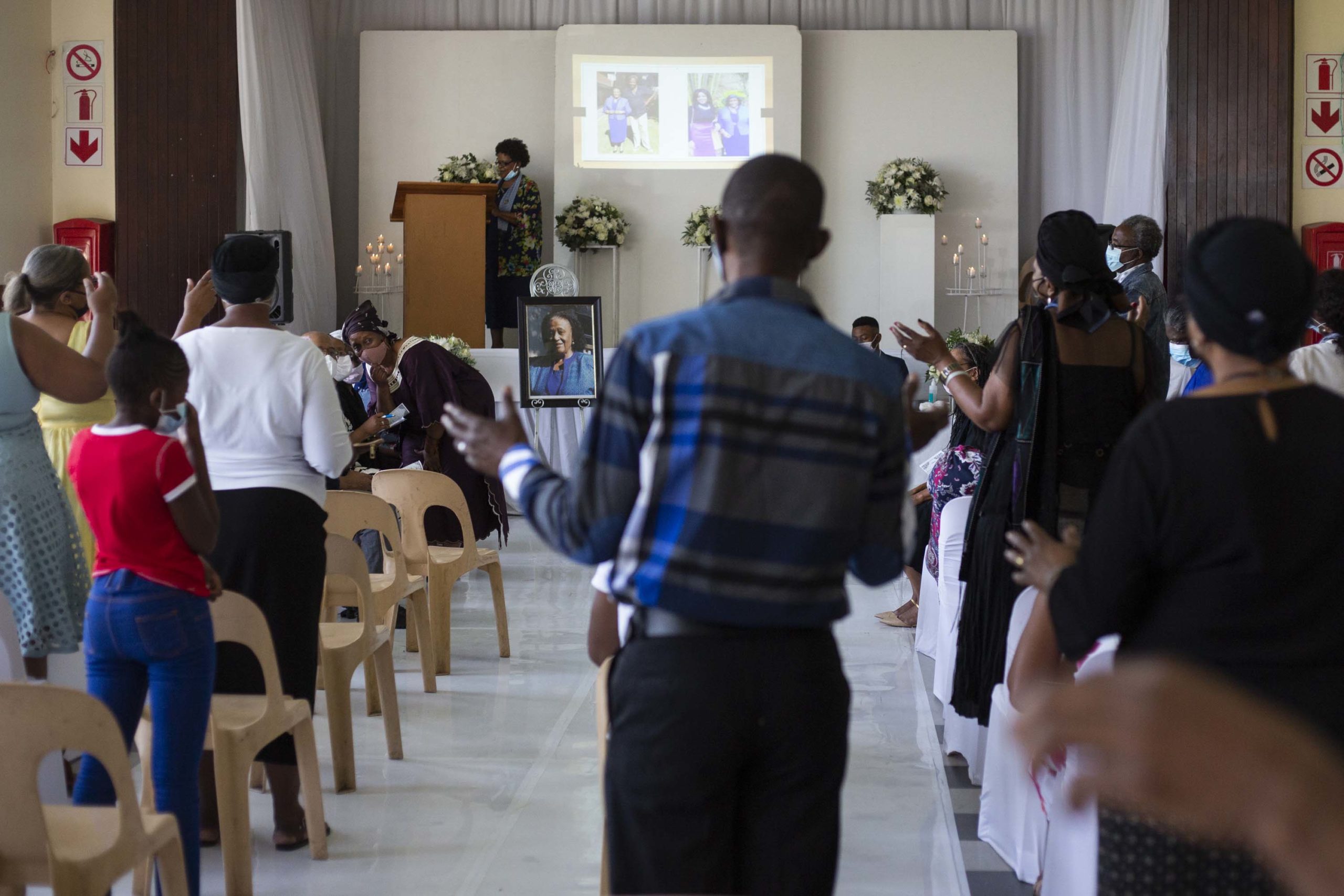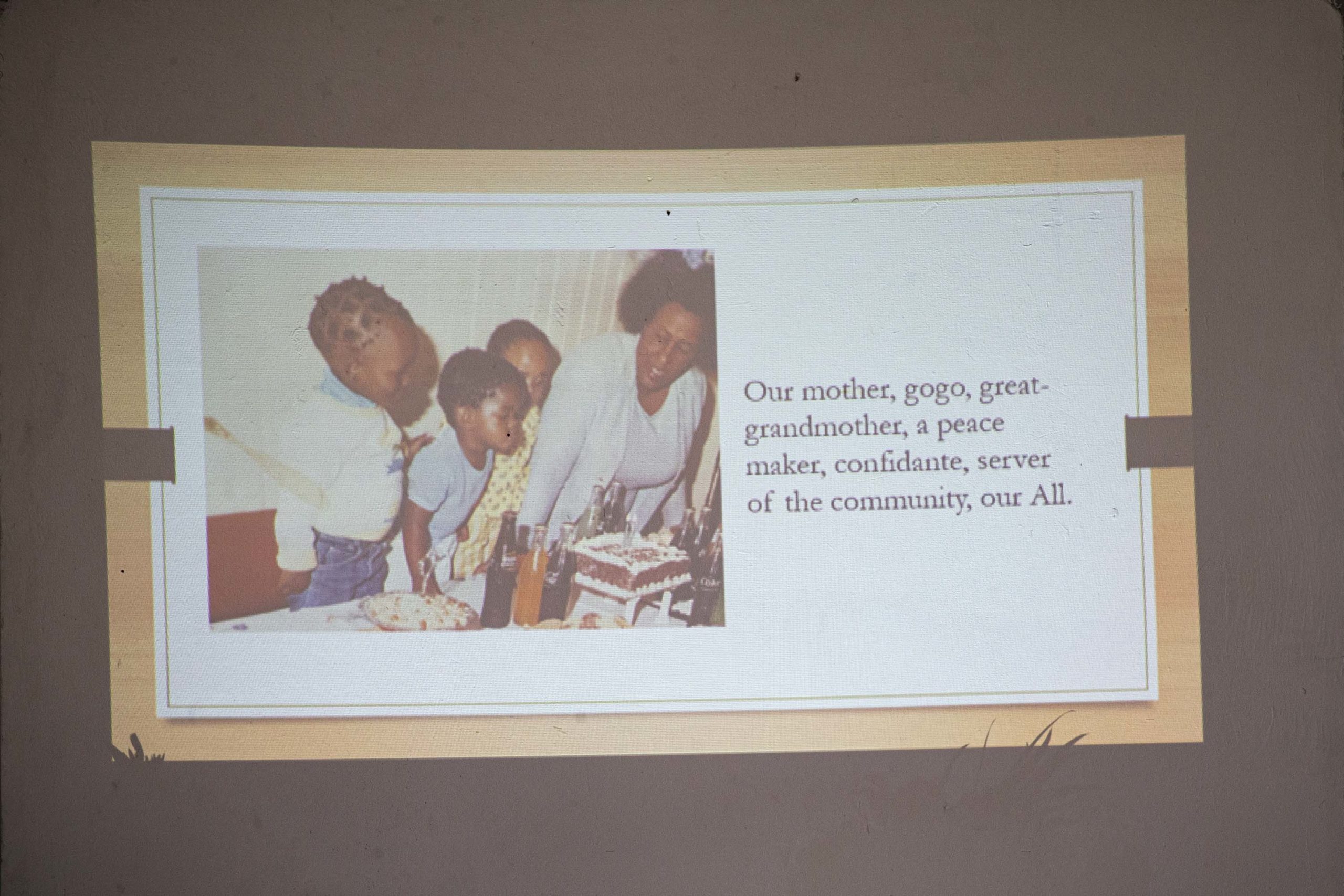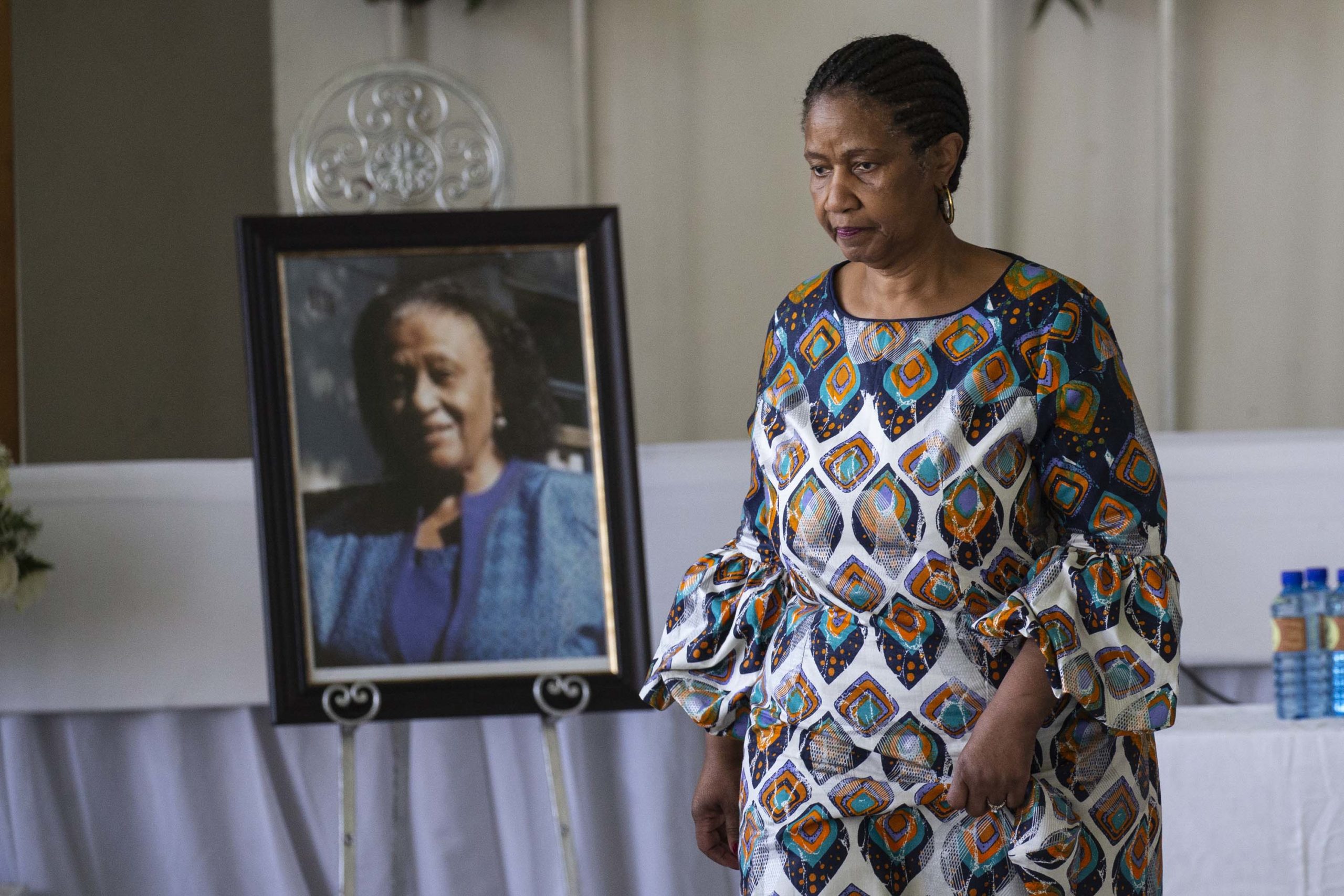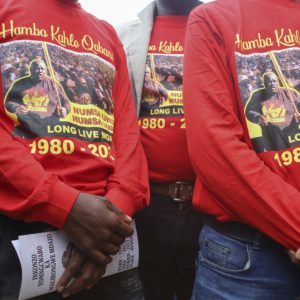‘Ma Lizzie’: selfless and loving ‘angel and star’
The late Elizabeth Mkame dedicated her life to helping the marginalised and impoverished. She served tirelessly not only during some of the worst times of apartheid, but also in the fraught years s…
Author:
19 October 2021

Tears were noticeably absent when family, community members and political and civic leaders attended the funeral service of Elizabeth Marie Mkame in Clermont, Durban, in KwaZulu-Natal. They did not cry because they say the struggle stalwart, who died on 10 October at the age of 84, had lived her life to the fullest as a community leader, peacemaker, freedom fighter, church elder and activist.
Affectionately known as Ma Lizzie or Aunt Lizzie, she died in her apartment in Pinetown, west of Durban, as a result of a severe stroke she had suffered a few weeks earlier. She was described as someone who gave her all to see South Africa transformed into a peaceful, non-racial and equitable society.
While many political leaders and cadres were safe in exile in faraway countries, Ma Lizzie and other leaders of her generation were at the frontline of the struggle against apartheid, facing the might and repression of the enemy head-on. Some were killed, brutally so. Some of those who had walked and worked with her in those days never saw a democratic South Africa.

The Durban-based human rights lawyer Griffiths Mxenge was ambushed and assassinated in 1981. His wife Victoria Mxenge, also a human rights lawyer, was shot and killed in front of her children in Umlazi, south of Durban, four years later. It later emerged that both of them were killed by apartheid hit squads.
Other leaders killed at the time include Lamontville activist Msizi Dube and Clermont community leader and businessperson Zazi Khuzwayo. Many others were arrested, banned and silenced. Still more died in the political violence of the 1980s and 1990s between the supporters of the ANC-aligned United Democratic Front and Inkatha.
Despite these hurdles, activists such as Ma Lizzie soldiered on, and it is largely through their sacrifice and hard work that apartheid was brought to its knees and a new path was forged in South Africa after 1994. When a new dispensation arrived and there were opportunities to hold positions of power and amass wealth before most of the people, she and these leaders decided to continue fighting for the impoverished and the elderly.
A guiding spirit
Many political, civic and church leaders recounted how Ma Lizzie was able to selflessly mould and guide them to become who they are. A number of lawyers recalled how she steered them from the time they graduated until they practised law, nudging them towards taking the cases of political prisoners and clients who could not afford to pay.
Political activists remembered how they had gone to Ma Lizzie for succour and how she helped them and their families when they were detained without trial, or faced trials for violating one of the many repressive laws. Impoverished and destitute old women said she had helped them as they tried to claim properties and pension funds and other inheritances after their husbands died. She had aided the elderly to access their pensions.
Her children said that despite their mother’s busy schedule as a community activist, she was a loving hen who had always been there for them, raising them with love and warmth. Many mourners spoke of her sense of style, how she had always dressed smartly for any occasion. Even more spoke about her humble disposition, respecting everyone in society, no matter their position.

She was a legal secretary who became the engine of the office of the human rights lawyers for whom she worked. During the height of apartheid in 1976, Ma Lizzie, Archbishop Denis Hurley and Paddy Kearney were among the founding members and staff of Diakonia, an ecumenical Christian agency that worked for social justice in Durban and housed dozens of organisations fighting for human rights. It continues to be the home of many of the city’s progressive organisations.
During the 1970s and 1980s, she also helped establish 14 community resource centres, using church buildings to train young people to develop their communities. These centres were also used by those unable to pay for lawyers and many elderly people who wanted access to their benefits after their spouses’ deaths got help through them.
Ma Lizzie used her legal knowledge to ensure these facilities also offered paralegal aid in problems such as no identity documents, access to old age pension and charges for breaking apartheid laws.
In 1980, Ma Lizzie was one of the founding members of Zibambeleni Old Age Home in KwaDabeka, near Pinetown, which continues to offer comfortable shelter for Black elderly people from all over KwaZulu-Natal.
Early start in selflessness
Ma Lizzie had an uneasy upbringing. She was born in Burlington, a shack settlement near the suburb of Malvern, which was designated for white people. Her parents died when she was still a young child. She was reared by her stepmother, who steered her towards Catholicism, to which she would dedicate her whole life. She began her community activism as a teenage girl when she joined the Young Women’s Christian Association (YWCA), which helped her find her purpose.
She said that she met women at the YWCA who were able to nurture her and influence the way “I carried myself”. In later years, she attributed her selflessness to the influence of Nelson Mandela, saying he was a “great leader” who “led by example, kept no grudge and loved the country more than himself. I was inspired by the way he stepped down as the president after one term and believed that those he was leaving behind were capable of running the country … He didn’t want to hoard leadership.”
Related article:
Phumzile Mlambo-Ngcuka, former deputy president and until recently the executive director of United Nations Women, said she counts herself among the lucky ones who were tutored by Ma Lizzie when she joined the YWCA as a teenager. She said the older woman did not only raise her warmly, like her own child, but also shaped her into a strong young woman who would become a leader in society.
“It is wonderful to have a parent who was such a good role model. Everything she did has made me a better person. If I had gone the other way and I wanted someone to blame, it would never have been her … because for me she was a book that was enjoyable,” she said.
Mlambo-Ngcuka and her lawyer husband Bulelani Ngcuka, a former head of the National Prosecuting Authority, were among the many who attended Ma Lizzie’s funeral.

An angel and a star
Rubin Phillip, an anti-apartheid cleric in the Black Consciousness Movement and bishop emeritus of the Anglican Diocese of Natal, said Ma Lizzie had played her role with distinction and had now handed the baton to the next generation of grassroots leaders.
“I am saddened by her death. In fact, in recent months, Liz has been on my mind as I reflected on the amazing ministry she performed in the Dependence Conference by serving the families of political prisoners, including those on Robben Island. As chairperson of the Dependence Conference Committee over many years, I came to appreciate the loving and sacrificial ministry that Aunt Liz extended to the families. She was an angel, a star. Thank you, Aunt Liz. She will be sharply missed. Rest in peace,” Phillip said.
Related article:
Ma Lizzie had four children whom she raised as a single mother. They said despite her never-ending community work, they never once felt neglected as she spread her wings to cover and secure them against life’s challenges and turbulence.
Son Sfiso Mkame, a visual artist, said Ma Lizzie’s vision and foresight opened many horizons for him. “She taught us that there are no chores for boys and different ones for girls. As a result, we were all able to clean, cook and fetch water. I have never been able to unlearn these skills and I still clean my home myself.
“When she was home, she told us folklore and African tales in an animated fashion. We used to enjoy that. She also introduced me to jazz and classic music and up to today I love music.”
Her daughter Jola Mkame, a corporate communications professional, said her mother was like a friend and an older sister to her and she always had time for all her children. “She had a beautiful heart. We lived with her, we loved her, but she loved us more. I will miss her, all of her. I don’t know what life will be like without my mum.”


